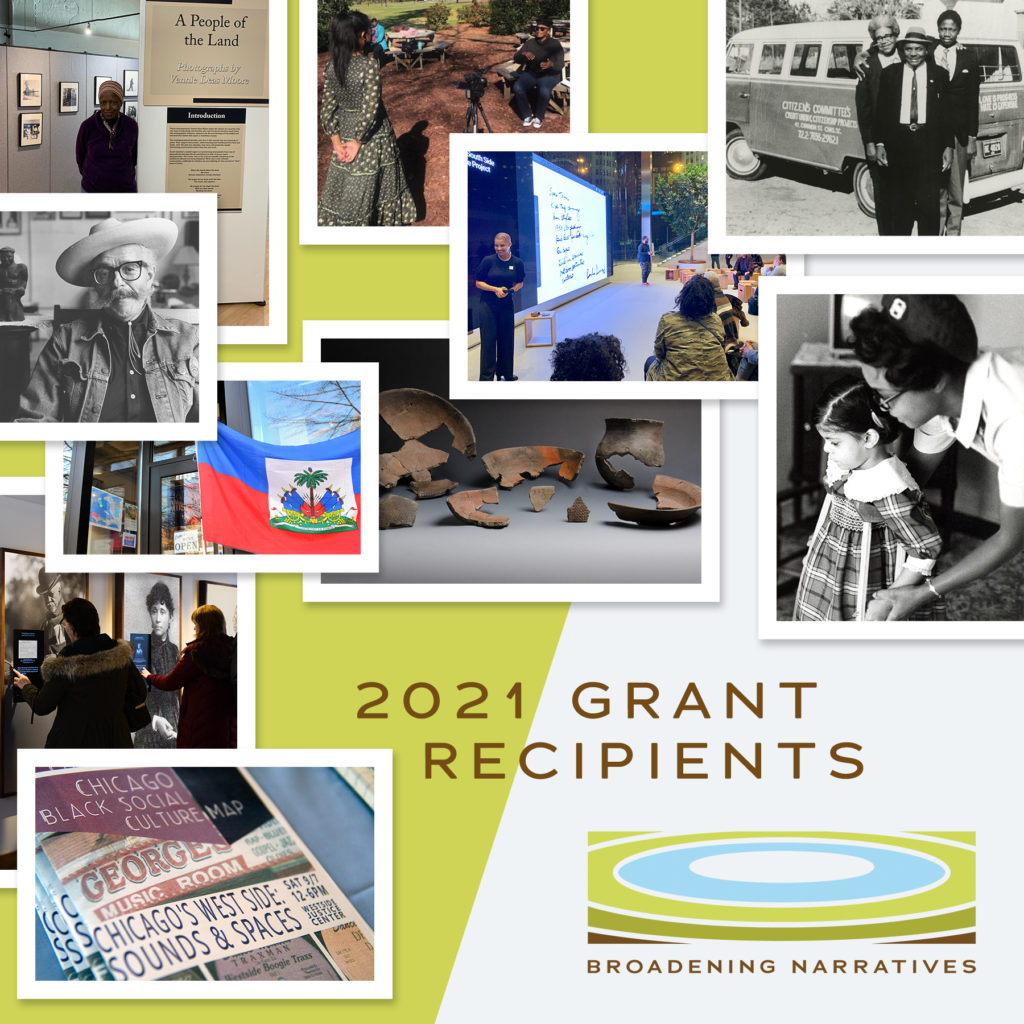» Archive Spotlight: Documenting the Arc
The Avery Research Center for African American History and Culture was awarded $100,000 from the Gaylord and Dorothy Donnelley Foundation’s new “Broadening Narratives” grant. Broadening Narratives is a groundbreaking collections initiative that illuminates underrepresented stories. The foundation awarded a total of $579,000 to 10 organizations in Chicago and the South Carolina Lowcountry, including Coastal Carolina University’s Joyner Institute for Gullah Studies, Drayton Hall Preservation Trust, Harbor Historical Association/South Carolina Maritime Museum, and the Penn Center.

“We are grateful to the Gaylord and Dorothy Donnelley Foundation for the opportunity to demonstrate how our stories should be told—through the words and lenses of local artists and activists,” says Tamara Butler, Co-Principal Investigator on the grant and Executive Director at the Avery Research Center for African American History and Culture. She continues, “Charleston’s Black culture and history are complex, multifaceted, and intergenerational. Therefore, these elements guide the research team’s approach to documenting activism connected to Black lives in this city. I hope that this work will grow us as historians, artists, educators, organizers, and most importantly as community members.”
The Avery Research Center will use its grant to fund the Documenting the Arc Oral History Project (DTA) to continue its mission of preserving and documenting the Black experience of the South Carolina Lowcountry. Avery’s staff recognize the need to be actively engaged in collecting stories and records of the current civil rights movement, and Documenting the Arc is an attempt to do just that. The project has two parts: video oral histories and the community submission portal.
Joshua Parks, former Avery Graduate Assistant and current Director and Producer for Cedar Wolf Media, states, “What I’ve learned from the Documenting the Arc project is not necessarily the power of story, because as a student of history, I already knew stories were important to the human experience. I learned the power of Black-led institutions, organizations, and media creating platforms and processes to take ownership of their historical narratives. The Documenting the Arc project serves as an example for all interested in doing this type of work.”
Avery contracted Cedar Wolf Media and Historian and Community Advocate Dr. Millicent E. Brown to conduct and make accessible video oral history interviews with individuals who spearheaded the call for justice between 2014 and 2020. The project begins by focusing on the formation of Black Lives Matter Charleston in late 2014 through the local George Floyd protests and civil unrest that marked the Summer of 2020, emphasizing the period between the killing of Walter Scott and the massacre at Mother Emanuel AME Church. Selection criteria include millennial, Generation Z, and veteran activists and organizers who advised and actively participated in grassroots demonstrations and organizing efforts during the specified time. The interviews will be accessible via the Lowcountry Digital Library (LCDL).
Since interviews are limited, Avery also partnered with Cedar Wolf Media to create a submission portal for extended community members. The portal will allow individuals and organizations to share their short stories, poetry, photographs, protest signs, unique songs, or anything else they feel illustrates the movement, their stories, or those of their loved ones, friends, and community members. Individuals will submit an interest form to contribute to the community submissions portal.
The Documenting the Arc collection, including video interviews, transcripts, and items collected via the submission portal, will be publicly accessible once the archivists have processed the records.
“This project is important to telling the story of Black activism by those who actively participated in the work. Through the interviews we have completed, we have been able to document the work of activists and obtained a better understanding of the workings of the organizations as well as the values and concerns of Black people in Charleston,” says Aaisha Haykal, Co-Principal Investigator on the grant and manager of archival services at the Avery Research Center for African American History and Culture.
